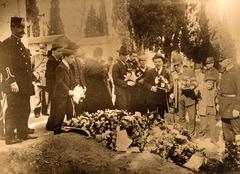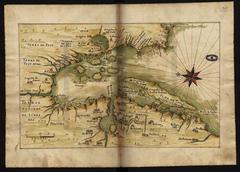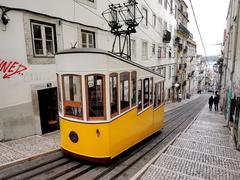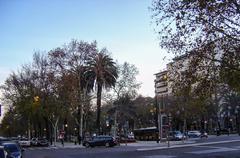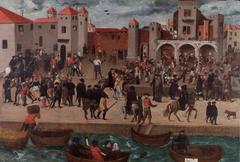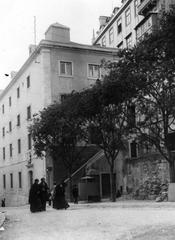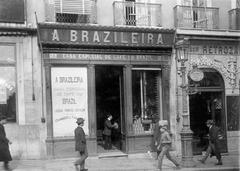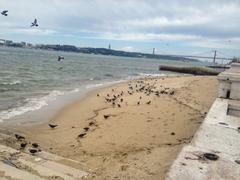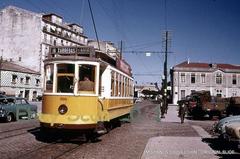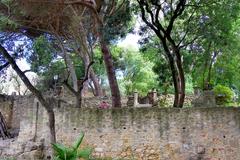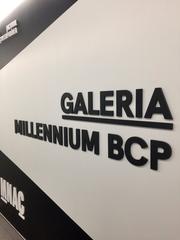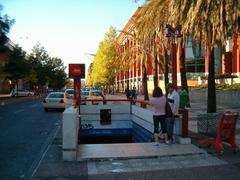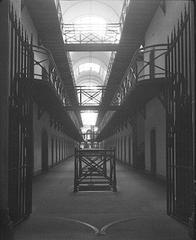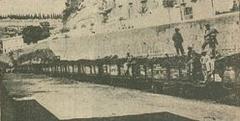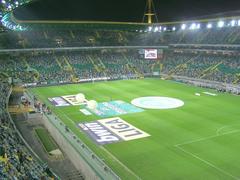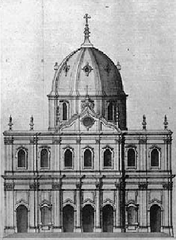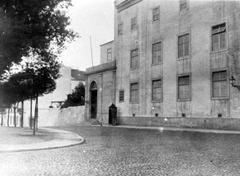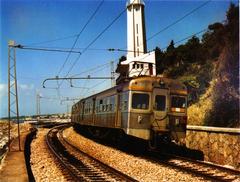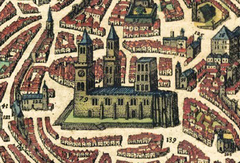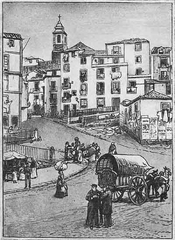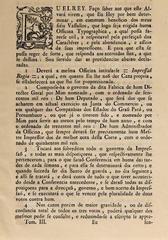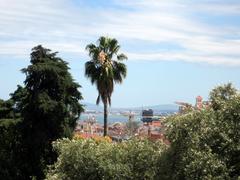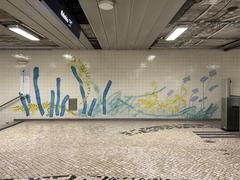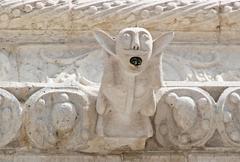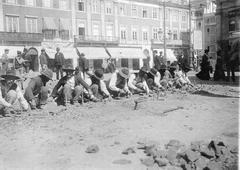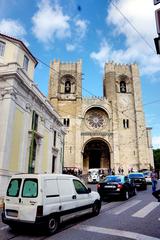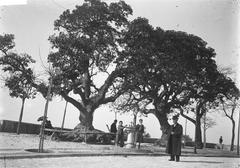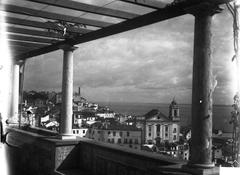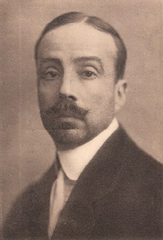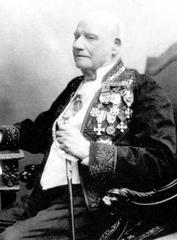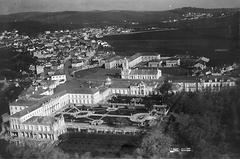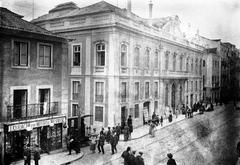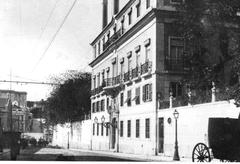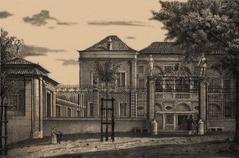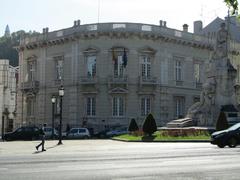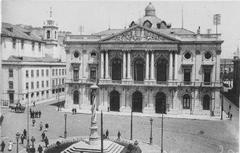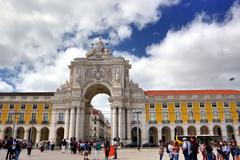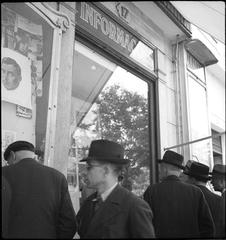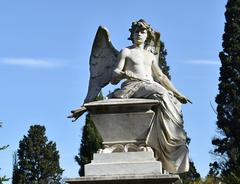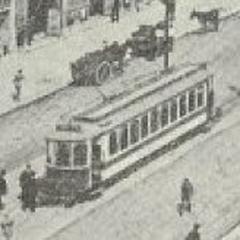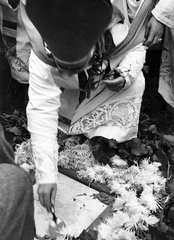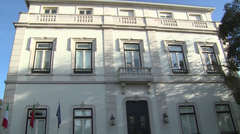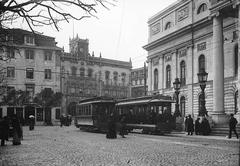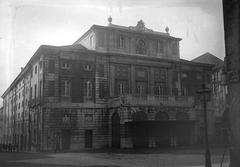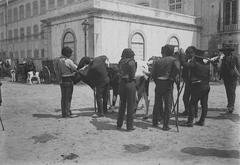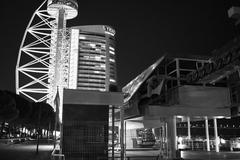
Portuguese Military Academy: Visiting Hours, Tickets, and Historical Significance in Lisbon
Date: 03/07/2025
Introduction
The Portuguese Military Academy (Academia Militar) in Lisbon is a storied institution, deeply intertwined with Portugal’s national identity, military history, and architectural heritage. Established in the 17th century and formally founded in 1790 as the Royal Academy of Fortification, Artillery and Drawing, the Academy has continually evolved, shaping generations of military leaders and contributing to pivotal moments in Portuguese history. Housed within the majestic Palácio da Bemposta—a baroque palace built for Queen Catherine of Braganza—the Academy stands as both a center of excellence in military education and a fascinating cultural landmark open to visitors. This guide provides detailed information on the Academy’s historical significance, visiting hours, ticketing, accessibility, and tips to plan an enriching visit in Lisbon’s Ajuda district (Academia Militar; Lisbon Military Museum).
Table of Contents
- Introduction
- Historical Overview
- Academic Mission and National Impact
- Heritage and Symbolism
- Palácio da Bemposta: Architectural Landmark
- Visiting the Military Academy
- Integration with National and International Military Education
- Frequently Asked Questions (FAQ)
- Conclusion
- Explore More
- References
Historical Overview
Early Foundations
The Academy’s origins trace back to the “Lição de Artilharia e Esquadria” (Artillery and Squadron Lesson), established by King João IV in 1641 during the Restoration War. This initiative at the Paço da Ribeira (now Praça do Comércio) is considered Portugal’s first formal military school (Academia Militar). The formal creation of the “Academia Real de Fortificação, Artilharia e Desenho” by Queen Maria I in 1790 marked the beginning of advanced military education, offering specialized training for officers in artillery, engineering, infantry, and cavalry.
19th and 20th Century Transformations
In 1837, following the Napoleonic invasions and the Liberal Wars, the Academy was restructured into the Army School (Escola do Exército), underscoring Portugal’s commitment to a professional, modern military. The move to Palácio da Bemposta in 1851 further solidified its prominence (Wikipedia). The 20th century brought further evolution, with multiple name changes reflecting the country’s shifting political landscape, and the expansion of facilities, including a second barracks in Amadora. Since 1991, the Academy has also prepared officers for the Republican National Guard (GNR).
Role in Portuguese Nation-Building
Throughout its history, the Academy has contributed to key national events, from the Peninsular War and the construction of the Lines of Torres Vedras to the 1910 Republican revolution and the Carnation Revolution of 1974, which restored democracy (World History Journal). Many alumni have gone on to become presidents, military leaders, and influential figures in Portuguese society.
Academic Mission and National Impact
Today, the Portuguese Military Academy offers university-level degrees in military sciences, engineering, management, and health sciences, alongside postgraduate and doctoral programs. Emphasizing research, leadership, and innovation, it trains officers for the Army and GNR, while also fostering international collaboration (Academia Militar; Edarabia). Its research center, CINAMIL, partners with other institutions to advance defense studies.
Heritage and Symbolism
The Academy’s coat of arms features a red shield with a golden lion holding a sword and an open book, symbolizing the union of military strength and learning. The shield is adorned with the Order of the Tower and of the Sword and the motto “Dulce et decorum est pro patria mori” (“It is sweet and proper to die for the fatherland”). Annual ceremonies, such as Military Academy Day on January 12, reflect its enduring traditions (Academia Militar).
Palácio da Bemposta: Architectural Landmark
The Palácio da Bemposta, built in the early 18th century for Queen Catherine of Braganza, is a baroque masterpiece that survived the devastating 1755 Lisbon earthquake. Its grand halls, ornate chapels, and beautifully landscaped gardens provide a stunning setting for military education and public events. The palace is both a living museum and a testament to Portugal’s royal and military heritage (Lisbon Military Museum).
Visiting the Military Academy
Visiting Hours
- The Academy is primarily open to visitors during special open days, commemorative events, and by appointment for guided tours.
- Typical tour times: Tuesday to Saturday, 10:00 AM to 4:00 PM.
- Closed on Mondays and major public holidays.
- Always check the official website or contact the administration for current schedules and event days.
Tickets and Admission
- Admission is often free during public events.
- Guided tours may require advance booking and a nominal fee (around €5 per person, with discounts for students, seniors, and groups).
- Tickets can be purchased online or in person; early booking is recommended due to limited public access (EduIQ).
Accessibility
- Main exhibition areas and modern facilities are wheelchair accessible.
- Some historic sections may have limited access; visitors with mobility concerns should inquire in advance.
- On-site staff can provide assistance for visitors with special needs.
Guided Tours and Events
- Guided tours, available in Portuguese and English (advance request required), include the main hall, library, chapel, and museum areas.
- Annual events such as Military Academy Day, parades, and graduation ceremonies offer unique insights into Portuguese military traditions.
- Group and educational visits can be arranged by appointment.
Travel Tips and Nearby Attractions
- Location: Largo da Bemposta, 1100-088 Lisbon, in the Ajuda district, near Belém.
- Transport: Accessible via bus and tram; parking is limited.
- Dress Code: Smart casual; avoid shorts, flip-flops, or revealing clothing.
- Photography: Allowed in most public areas, but restrictions apply in sensitive zones—always ask for permission.
- Nearby Attractions: Ajuda National Palace, Jerónimos Monastery, Belém Tower, MAAT (Museum of Art, Architecture and Technology), and the historic Alfama district. A visit to the Academy can easily be combined with these iconic sites (Lisbon Military Museum).
Integration with National and International Military Education
Since 2014, the Academy has operated within the Instituto Universitário Militar (IUM), Portugal’s umbrella organization for advanced military education (CRUP). The Academy is active in international cooperation, hosting conferences such as the XLIX International Congress of Military History and collaborating with other military academies on training and research (ICMH Congress).
Frequently Asked Questions (FAQ)
Q: Can I visit the Portuguese Military Academy any day?
A: No, visits are limited to special open days, events, or by appointment for guided tours. Always check the latest information online.
Q: Are tickets required?
A: Public events are usually free, while guided tours may require a ticket and pre-booking.
Q: Is the Academy accessible for visitors with disabilities?
A: Most modern facilities are accessible, but some historic areas may be challenging. Contact the Academy to discuss your needs.
Q: Are guided tours available in English?
A: Yes, with advance notice.
Q: Can I take photos or videos?
A: Photography is permitted in most areas, except where restricted for security reasons. Always ask for permission.
Q: How can I book a tour?
A: Tours can be arranged through the official website or via the Lisbon tourism office.
Conclusion
A visit to the Portuguese Military Academy offers an immersive experience in Portugal’s military traditions, national history, and architectural grandeur. The Academy’s blend of historical significance, educational excellence, and vibrant ceremonial life makes it a compelling destination for travelers, history enthusiasts, and students alike. Plan ahead for guided tours or special events, and enrich your Lisbon itinerary by exploring neighboring heritage sites.
To make the most of your visit, confirm event dates and ticketing in advance, observe the Academy’s protocols, and consider combining your trip with nearby cultural attractions.
Download the Audiala app for audio guides, interactive maps, and exclusive visitor tips, and follow us on social media for the latest updates and content about Lisbon’s historical sites.
Explore More
- Lisbon Military Museum
- Jerónimos Monastery
- Migrating Miss: 21 Things To Know Before You Visit Lisbon
- Gamintraveler: Mistakes Tourists Make While Visiting Lisbon
- XLIX International Congress of Military History
- World History Journal
- Edarabia: Military Academy Lisbon Portugal
References
- Academia Militar
- Lisbon Military Museum
- Wikipedia: Military Academy (Portugal)
- World History Journal
- CRUP: Instituto Universitário Militar
- Edarabia: Military Academy Lisbon Portugal
- ICMH Congress
- Migrating Miss





















